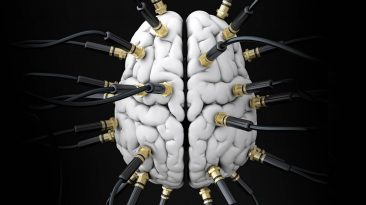Imagine, it comes out of nowhere. A blinding flash, spanning the entire globe. It lasts only a few seconds, but when it’s over, everyone’s memories have been erased.
We’re talking almost 8 billion people suddenly forgetting who they are, overwhelmed by panic and confusion. What would the aftermath of the flash be like? And could this actually happen?
So, the event we’ll refer to as “the flash” happens all over the world, and the result is a massive case of amnesia for the entire human race. Losing your memory doesn’t necessarily mean you forget how to function.
You can still understand how to stay alive, that you need to eat, and to avoid danger. Other than that, it’s a fresh start – for everyone on the entire planet. What would happen after the flash?
In a word, hysteria. Anything could happen!
This event would essentially press the reset button on humanity, minus all those years of evolution. Instead of trying to wrap our heads around the concept of fire, we might be holding our smartphones to the skies and shaking them madly.
You wouldn’t know who your friends or family were. Or, in an even more awkward situation, who you were making out with before the flash.
And those are the less devastating consequences. At any given moment in time there are anywhere from 8,000 to 20,000 planes in the air. It’s bad news for everyone on board (not to mention anyone below) when the pilot forgets how to work this strange flying contraption.
On land, things won’t be much better. We have millions of cars on the road at any given time, plus buses, transport trucks, limos and motorcycles. If you thought there were bad drivers before, brace yourself!
Money and social structure would become a thing of the past. We might be able to acknowledge that someone is dressed a little better than we are, but we’d have no context to explain why.
Criminals like murderers and violent offenders could be released, with no memories of their crimes. Let’s hope the desire to commit evil deeds was wiped out along with their memories.
And healthwise, we’d be in bad shape, as our doctors, nurses and other medical professionals would forget their training, and all those years of experience. In summary, it would be a really, really bad day. We would have to rebuild our society, piecing together bits and pieces from our former lives.
After the dust settled, would this fresh start be a good thing? Things like political tension would be erased, and some countries may even not have borders anymore.
Or could it go the other way, with the world becoming a lawless wasteland? So, could it actually happen? To figure this out, let’s look at how your memory actually works.
Your memories are formed when proteins stimulate your brain cells to grow and form new connections. You’re literally rewiring your mind.
However, the longer you keep a memory around, the more unstable it becomes. If you’ve noticed your memory of something changing over time, or people saying your story is different, it’s probably due to a process called reconsolidation.
Every time you recall a memory, your brain gets re-wired again. It’s sort of like an old video tape. Even if you love the movie, the more you play it, the more wear and tear it receives.
Now, there have been cases of those metaphorical tapes being wiped clean, by various different causes and types of amnesia. While something this massive isn’t likely to occur, memory loss is a documented medical phenomenon, ranging from losing a few hours to more extreme cases like forgetting 20 years.
But could something besides an accident or illness wipe our memories? Well, there have been studies of what can happen to memories when a chemical called norepinephrine is blocked in the brain. Norepinephrine is responsible for your fight or flight reflex.
By blocking norepinephrine, researchers believe they can stop memories from being connected to negative emotions.
In 2015, a research team based in the Netherlands used a drug called propranolol to block norepinephrine in a group of people suffering from arachnophobia.
Over the span of three months, the participants given propranolol had their negative memories of spiders reduced enough that they could actually hold onto a tarantula. Their negative emotions and fear had basically been erased.
A common side effect of propranolol is short term memory loss, but could a higher, controlled dose actually wipe memories? Only time will tell.
Well, Let’s hope something like this doesn’t happen. But if it did, could we prepare for it? Could we somehow develop a technology to store our memories?
Subscribe to What-If on YouTube or follow the show on Facebook Watch.
Sources
- “The Difference Between Retrograde and Anterograde Amnesia @ Improvememory.Org – Brain Games For Kids And Adults”. 2010. improvememory.org. Accessed January 24 2020.
- “Scientists Already Know How To ‘Erase’ Your Painful Memories… And Add New Ones”. MacDonald, Fiona. 2020. Sciencealert. Accessed January 24 2020.
- “Korsakoff Syndrome”. 2020. Alzheimer’s Disease And Dementia. Accessed January 24 2020.
- “Live Flight Tracker – Real-Time Flight Tracker Map | Flightradar24”. 2020. Flightradar24. Accessed January 24 2020.
- “An Abrupt Transformation of Phobic Behavior After a Post-Retrieval Amnesic Agent”. Soeter, Marieke, and Merel Kindt. 2015. Biological Psychiatry 78 (12): 880-886. Elsevier BV. doi:10.1016/j.biopsych.2015.04.006.



























